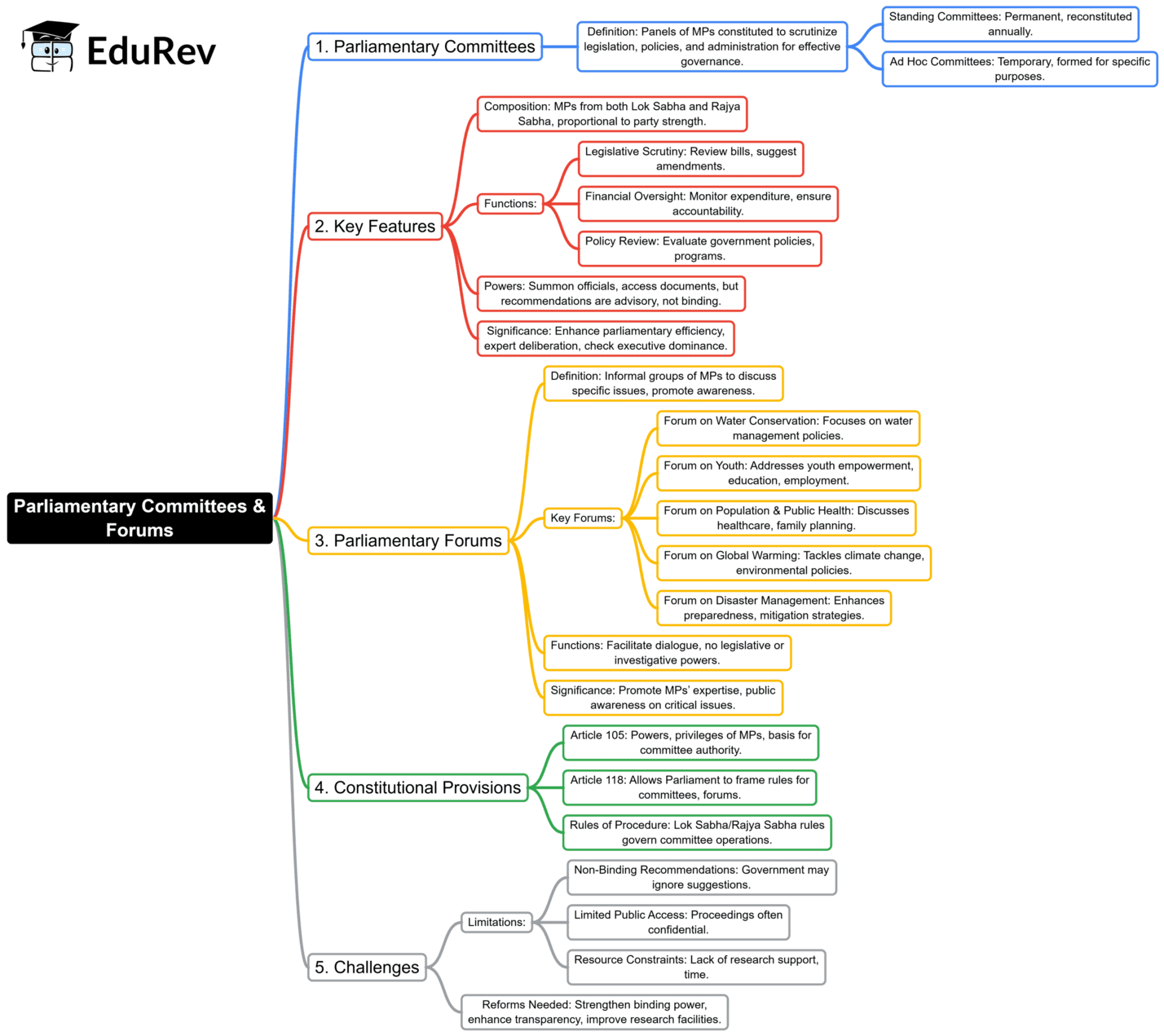UPSC Exam > UPSC Notes > Indian Polity for UPSC CSE > Mind Map: Parliamentary Committees & Forums
Mind Map: Parliamentary Committees & Forums | Indian Polity for UPSC CSE PDF Download

The document Mind Map: Parliamentary Committees & Forums | Indian Polity for UPSC CSE is a part of the UPSC Course Indian Polity for UPSC CSE.
All you need of UPSC at this link: UPSC
|
154 videos|994 docs|260 tests
|
FAQs on Mind Map: Parliamentary Committees & Forums - Indian Polity for UPSC CSE
| 1. What are the main types of Parliamentary Committees in India? |  |
Ans. In India, Parliamentary Committees can be broadly classified into two main types: Standing Committees and Ad-hoc Committees. Standing Committees are permanent and function throughout the year, including categories such as the Public Accounts Committee, Estimates Committee, and Committees on various ministries. Ad-hoc Committees, on the other hand, are temporary and are formed for a specific purpose, such as a Joint Committee to review a particular bill.
| 2. What is the role of the Public Accounts Committee (PAC) in the Indian Parliament? |  |
Ans. The Public Accounts Committee (PAC) plays a crucial role in ensuring financial accountability in the government. It examines the accounts showing the appropriation of funds voted by the Parliament and the audit reports of the Comptroller and Auditor General of India. The PAC's primary function is to scrutinize the government's expenditure and ensure that public money is spent efficiently and for the intended purposes.
| 3. How do Parliamentary Committees contribute to the legislative process in India? |  |
Ans. Parliamentary Committees significantly contribute to the legislative process by conducting in-depth examinations of various issues, bills, and policies. They gather evidence, solicit opinions from experts and stakeholders, and prepare reports that provide recommendations. These reports help inform discussions in the Parliament, resulting in well-considered legislation and effective governance.
| 4. What is the significance of the Joint Parliamentary Committees (JPC) and when are they formed? |  |
Ans. Joint Parliamentary Committees (JPC) are significant as they consist of members from both Houses of Parliament and are formed to investigate specific issues of national importance, often related to legislation or controversies. They are typically established when the matter at hand requires a thorough examination that transcends party lines, such as issues of corruption or significant policy changes.
| 5. How does the functioning of Parliamentary Committees enhance transparency and accountability in governance? |  |
Ans. The functioning of Parliamentary Committees enhances transparency and accountability by allowing for detailed scrutiny of government actions and policies. They conduct inquiries, hold hearings, and publish reports that are accessible to the public. This process promotes informed debate in Parliament and holds the government accountable for its decisions, leading to greater public trust in democratic institutions.
Related Searches
















